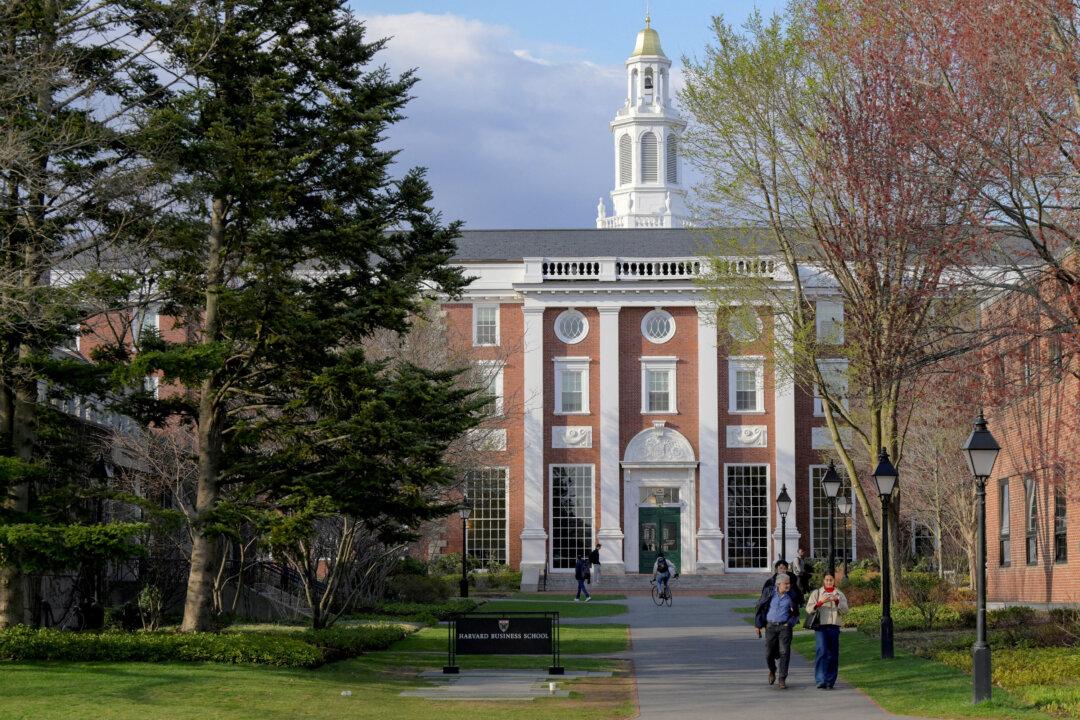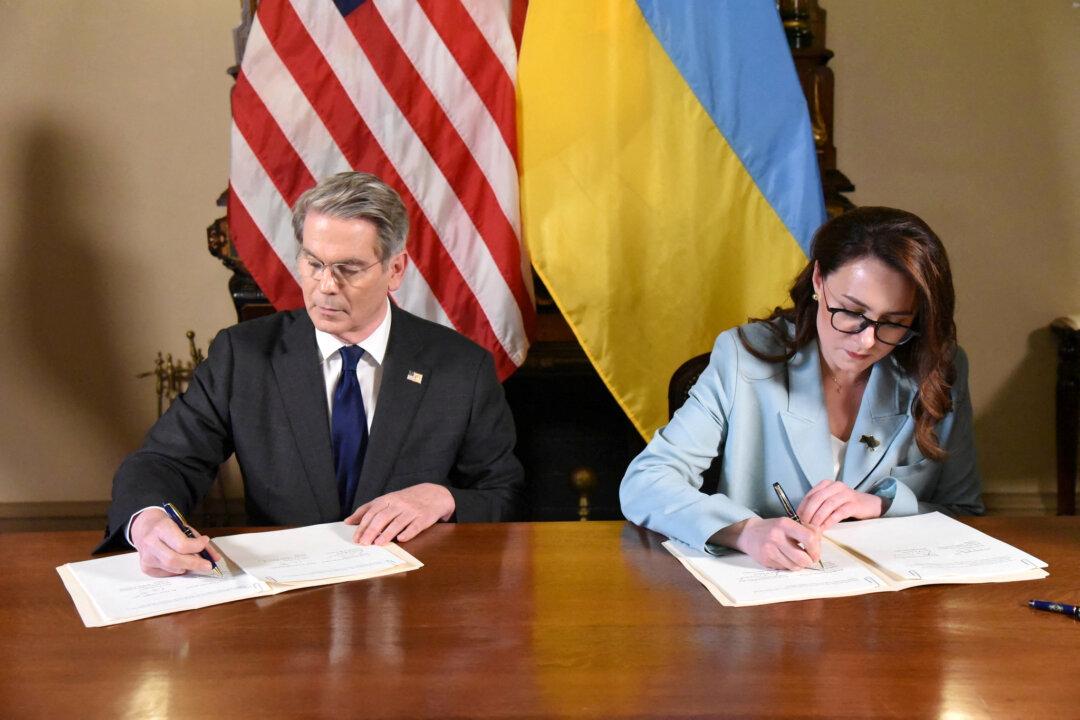President Donald Trump suggested on April 30 that Harvard University would no longer receive any government grants, as the Ivy League institution continued to refuse to eliminate its diversity, equity, and inclusion (DEI) requirements and combat anti-Semitism on campus as requested by his administration.
“It looks like we are not going to be giving them any more grants, right, Linda?” the president said to Education Secretary Linda McMahon during remarks.
“A grant is at our discretion, and they are really not behaving well. So it’s too bad.”
The Trump administration froze billions of dollars in federal contracts and grants at the beginning of the month due to the school’s noncompliance with executive orders regarding DEI programs and anti-Semitism in higher education, specifically allegations of anti-Semitic activities during pro-Palestinian protests in the wake of Hamas’s terrorist attack on Israel in October 2023 that triggered the ongoing Gaza war.
The administration has also urged Harvard to disclose details about its foreign ties, with the Department of Homeland Security threatening to revoke its ability to enroll foreign students.
The administration has frozen $2.3 billion, and nearly $9 billion in federal funding set aside for Harvard is under review. The president has also considered revoking its tax-exempt status.
Harvard has taken legal action to unfreeze the funds, stating, “The tradeoff put to Harvard and other universities is clear: Allow the government to micromanage your academic institution or jeopardize the institution’s ability to pursue medical breakthroughs, scientific discoveries, and innovative solutions.”
The university released two reports on April 29 that found many Arab, Jewish, and Muslim students had experienced bigotry on campus during the protests.
“Especially disturbing is the reported willingness of some students to treat each other with disdain rather than sympathy, eager to criticize and ostracize, particularly when afforded the anonymity and distance that social media provides,” Harvard President Alan Garber wrote in a letter to the campus community. “Some students reported being pushed by their peers to the periphery of campus life because of who they are or what they believe, eroding our shared sense of community in the process.”
The Task Force on Combatting Antisemitism and Anti-Israel Bias issued a 311-page report recommending that the university adopt the definition of anti-Semitism used by the International Holocaust Remembrance Alliance and expand Jewish and Israel-related academic programming.
Meanwhile, the Task Force on Combatting Anti-Muslim, Anti-Arab, and Anti-Palestinian Bias issued a 222-page report suggesting defining Islamophobia and related biases, establishing mental health services, and expanding Palestinian studies.
Both groups emphasized stronger free-speech protections.







